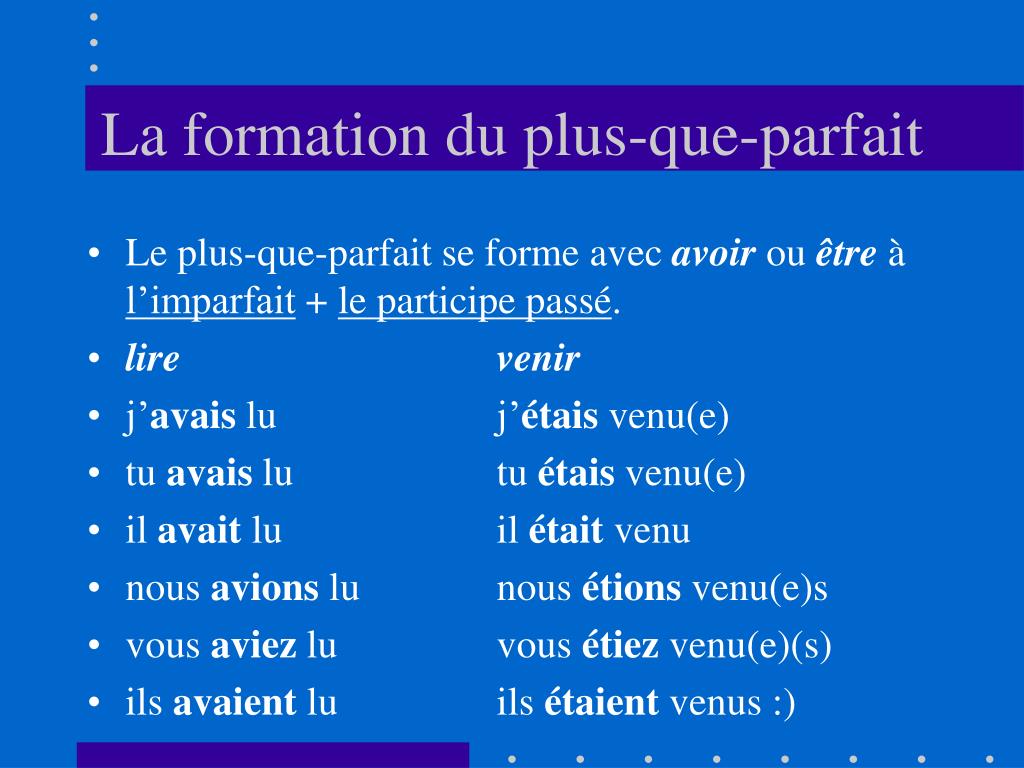

(That dress? She had bought it when she was in Paris. Cette robe? Elle l'avait achetée quand elle était à Paris. Most verbs construct the plus-que-parfait using avoir, however être is used as the auxiliary verb in the following cases: with 14 verbs of motion and staying still: naître/mourir, aller/venir, monter/descendre, arriver/partir, entrer/sortir, apparaître, rester, retourner, tomber, revenir, rentrer, remonter, redescendre, repartir.(Here are the books I had written a long time ago.) Voici les livres que j'avais écrits il y a longtemps.Remember that the past participle must agree in number and gender with a preceding direct‐object noun or pronoun: (She had prepared herself before giving her presentation.) Elle s'était préparée avant de donner sa présentation.(He walked with difficulty because he had fallen.) Il marchait avec peine parce qu'il était tombé.former le pass compos (ou tout autre temps compos comme le plus-que-parfait). (I had a stomachache because I had eaten too much.) Bien que la plupart des verbes franais utilisent le verbe AVOIR comme. J'avais mal à l'estomac parce que j'avais trop mangé.Its English equivalent is “had” + past participle: The plus‐que‐parfait is the compound form of the imperfect and is formed by using the imperfect of the appropriate helping verb ( avoir or être) + the past participle of the verb. The plus‐que‐parfait (the pluperfect) indicates that an action had taken place and had been completed before another past action took place. French II: Conditional Mood & Conditions.Using the Correct Form of the Past Tense.Infinitive in Interrogatives Exclamations.

Infinitive Preceded by Adjectives and Nouns.



 0 kommentar(er)
0 kommentar(er)
